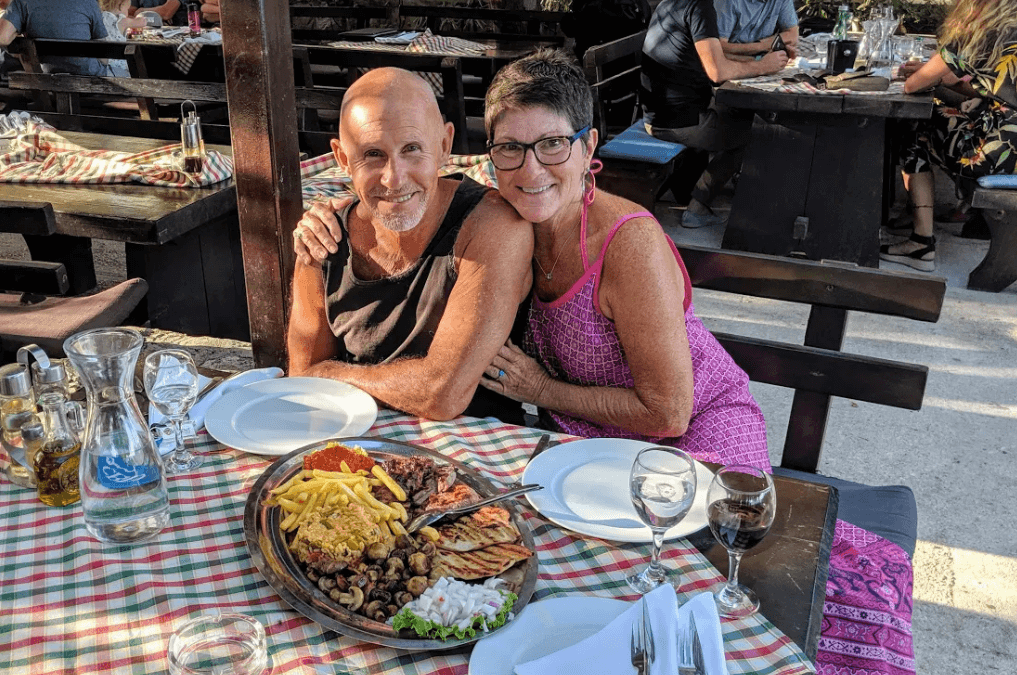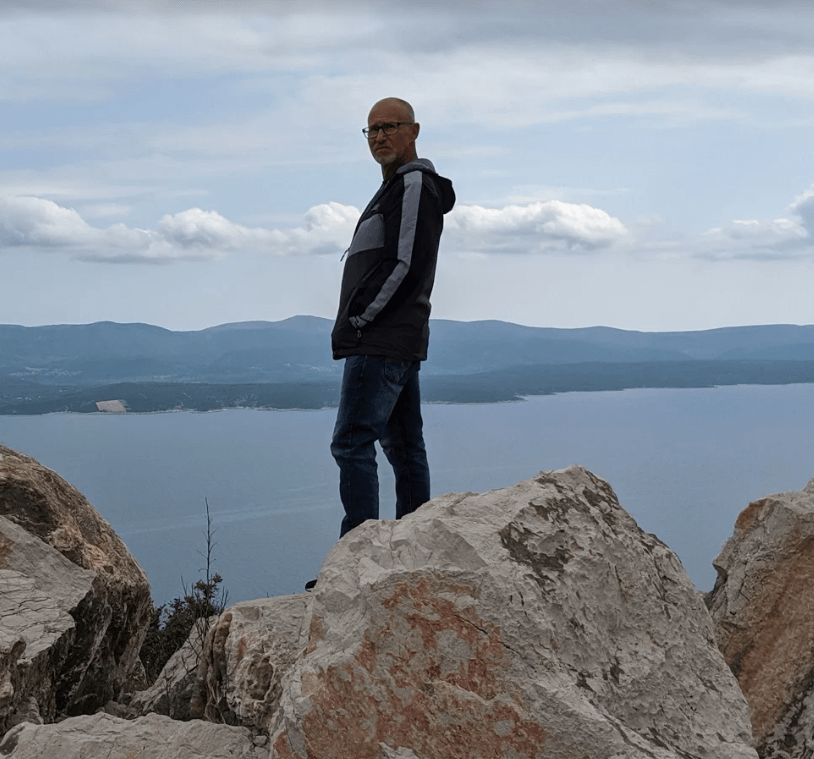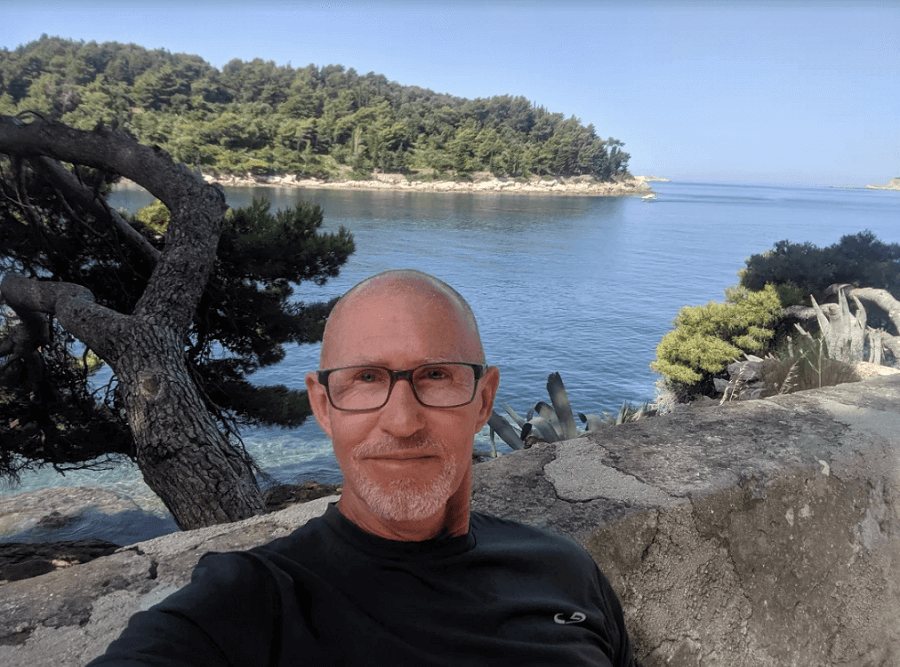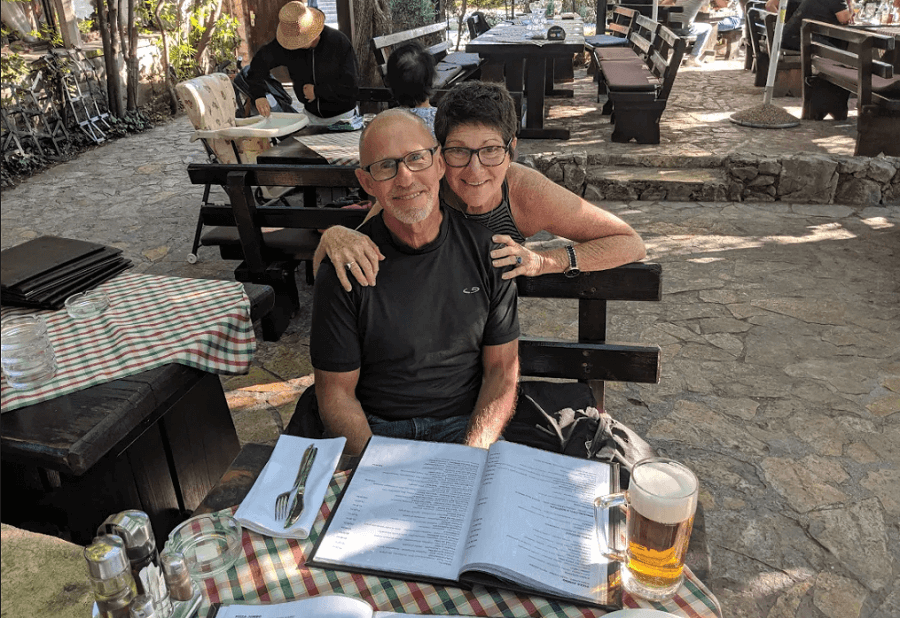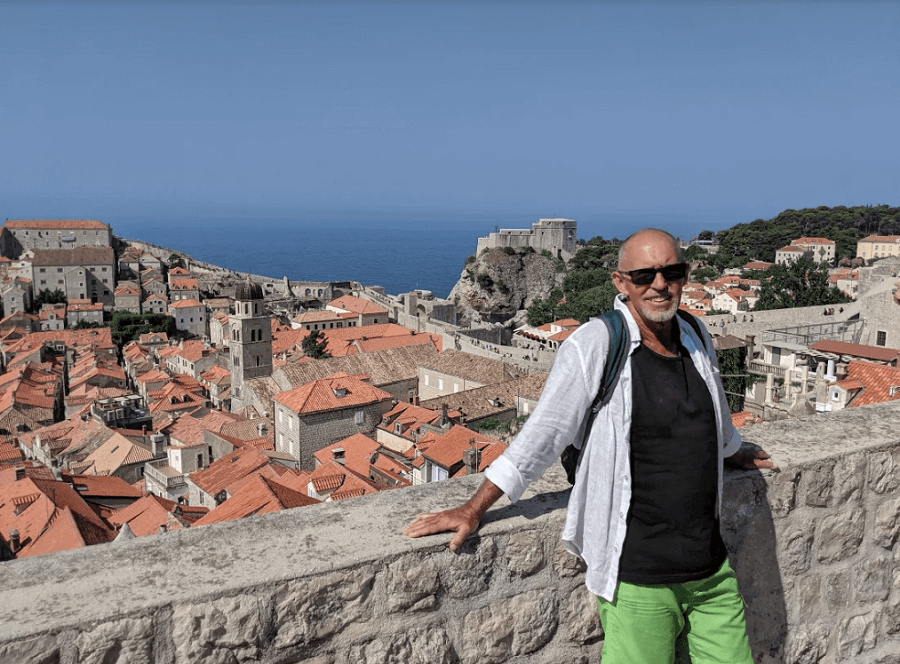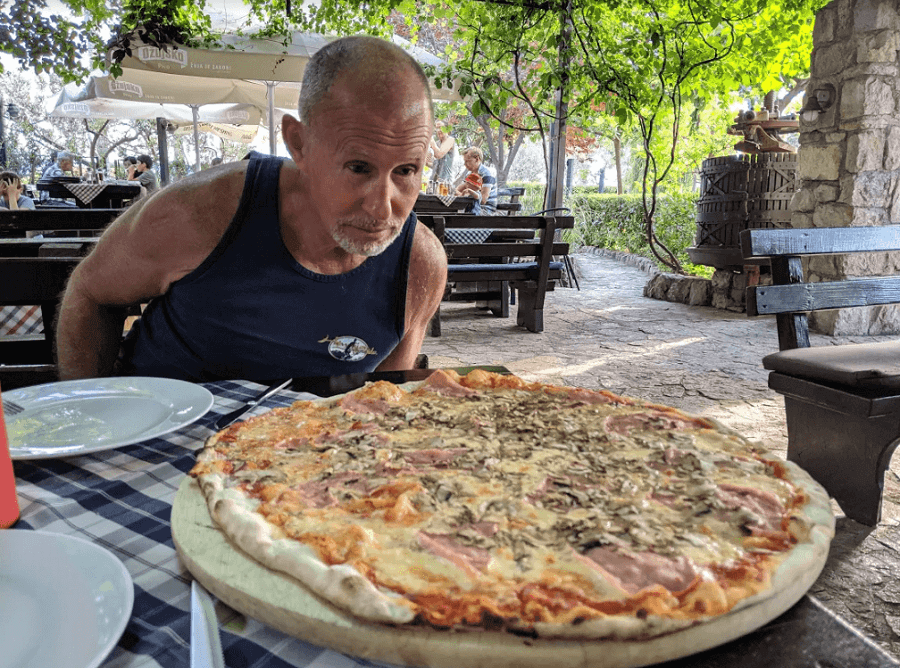Digital Nomad Life in Croatia: Norm Bour, from Orange County to Kastela
July 8, 2019 - As the number of digital nomads rises globally, some are choosing to spend some of their time in Croatia. A new TCN series meeting international digital nomads calling Croatia their temporary home. Meet Norm Bour from Orange County.
As recently featured on TCN, the world is projected to have a billion digital nomads by 2035, people from all over the world doing all manner of jobs and business with one thing in common - a flexible, mobile workplace connected to the Internet. If even a fracture of that number becomes a reality, the economic opportunity for countries which can attract these wealth-generating individuals has the potential to dwarf Croatia's current tourism revenues. And there are few countries better placed than Croatia to take advantage. Safe, beautiful, great gourmet scene, top tourist destination, English widely spoken, well connected to other destinations, and a superb lifestyle.
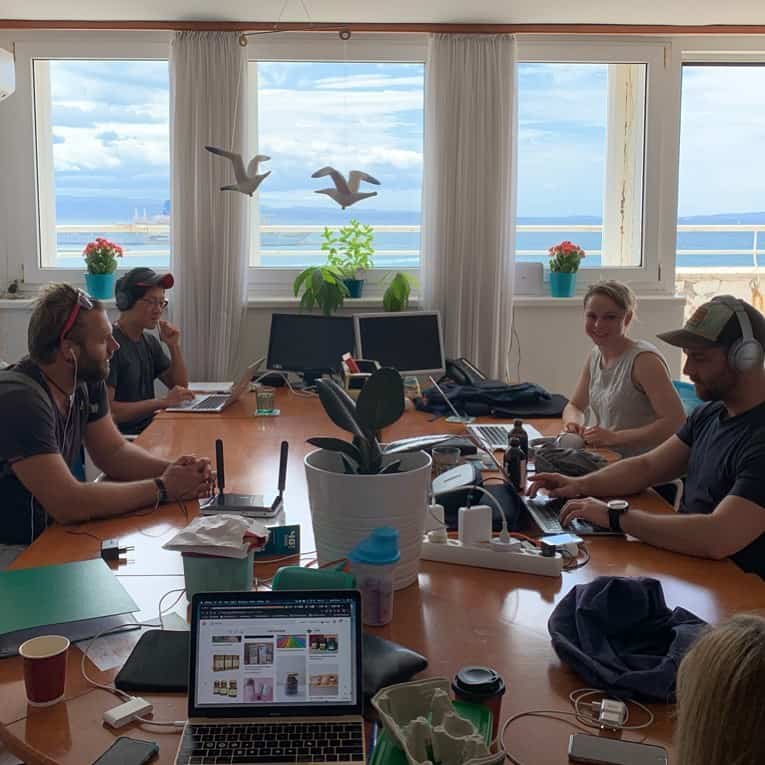
In order to look at the issue in more detail, we have decided to look at some of the digital nomads who have Croatia in their lifestyle plan, and to find out why Croatia, what Croatia offers, and what are the things that countries should be looking out for to take advantage of this economic opportunity. I am very grateful to Tanja Polegubic from Split's waterfront co-working space, Saltwater in Split (see location below) for her help in connecting me to various digital nomads using her space.
Our next digital nomad in Croatia is Norm Bour, who enjoyed Dalmatian sunshine after arriving from Orange County, California.
- You are one of a growing number of digital nomads. Tell us briefly who you are and what you do.
I don’t fit the mold of the “typical” digital nomad, but instead call myself a Traveling Nomad. Since I use the digital network I am part of that crowd, but as a lifelong entrepreneur, and mostly retired at age 65, I travel for fun and work as I can and need to.
I left the US on February 17, 2019 and travel the world six weeks at a time, ie, we spend six weeks (or so) at our stops, then move on. I was a Californian for 40 years and visited Europe three years ago for the first time and was captivated by the quality and QUANTITY of life here. Being mindful of the EU Schengen requirements of 90 days, Croatia was a happy exit from there and we have fallen in love with this country. I am a consultant and write in a specialized field but as I committed to “travelling like a Millennial” I now teach my demographics how to “Travel Younger.” The Millennial Generation travels affordably and with a great sense of fun and adventure, so I am committed to getting fellow Boomers out of their comfort zone and seeing the world with new younger eyes.
- Working from your laptop rather than in an office seems like the dream lifestyle. What are the main pros and cons?
Cons:
Spotty internet comes with the territory and can be frustrating, but in Croatia it has not been much of a problem. When you work for yourself it’s important to find time TO work, since there are so many fun things to do and amazing places to go.
Pros:
I have defined myself as a “highly unemployable entrepreneur” and have been for forty years. Being self-employed means no security (not that a job offers much!) but we must use enough focus to do what must be done. See above re: FUN!
- Laptop living gives you the freedom to travel and choose your place to live. Where are the global hot spots currently for digital nomads?
I have been researching worldwide options since last year when we spent six weeks in Spain and Portugal and concluded that we COULD live this nomadic lifestyle. Over the months my girlfriend and I got rid of almost everything we had, including old photos, books, clothes, furniture and cars. We left with two 28” suitcases, two backpacks and two large bags.
At our first stop, Valencia, Spain, we got rid of one suitcase filled with clothes and here in Croatia got rid of the other. To date we have jettisoned about 40 percent of what we started with and concluded it’s easier to buy winter clothes rather that cart them around all summer! The goal is to pare our needs down to two backpacks. We do plan to visit many of the typical digital nomad destinations in southeast Asia, like Thailand, Vietnam and Malaysia, and eventually to Central and South America. We are driven by one significant factor: the ideal 50 degree (Fahrenheit)/ 10 degrees Celsius temperature zone. The other goal is we must be near water, so many landlocked countries are not high on our list.
At this time we are not looking for a final destination but instead are seeking a few different locations to bop in and out of. So far Croatia is #1 on that list! The plan is to live here for our allotted time, then either stay close in Albania or Montenegro for proximity, or head over to Portugal, which previously was our #1 destination. The plan is being reworked with each new spot and when asked “When will you return to the US?” the response is “We probably won’t.” We will travel as long as it’s fun and see as much as we can while we are able to do so.
- You chose Croatia and specifically Split - why?
As a spiritual man I don’t believe in coincidences so landing in Split for six weeks was a blessing. We actually were in Kastel Kambelovac which was just a 20 minute bus ride to Split and about the same to Trogir. We were on the water with a great view and were immersed with LIVING in a seaside working village. The fishermen were up and working before sunrise and there were several local events which drew us in and made us feel part of the community. We were in Split city every few days and spent many hours wandering the streets, finding new food spots and supporting the vendors at their booths.
In hindsight and after going north to Zadar and south to Dubrovnik, I decided that the Split area was ideal. As a motorcycle rider we rented a bike for much of our time and got to experience the accessible coves and water north to Sibenik and the cliffs and majesty of the foliage and trees going south.
- What are the competitive advantages that Croatia has to attract more digital nomads?
As a writer and teacher of demographic differences between Baby Boomers, Gen X and Millennials, each generation has their own drivers and motivators. I think pending expat Boomers should take a serious look at Croatia because of affordability and quality of life, and the Gen X-ers and Millennials for the same reasons. To compare prices between the US and Croatia, our overhead is about 50 percent of what we spent in our prior home area, Orange County, which is just south of Los Angeles. We can get a fantastic meal for two here about $25 US dollars and our lodging was less than half the rent I paid. That was not the case in Dubrovnik proper, which we found to be very overpriced, but outside the walls prices were more reasonable
I was not that familiar with Croatia until a friend took a tour a few years ago and visited here and several other countries. Like many, I thought that the former Eastern bloc countries were mired in the past, but found that not to be true here. English speakers are very common, most notably with the under 40 generation. What I especially loved was the freedom here in this country. Drivers are generally courteous, people don’t put on airs or try to be pretentious and everyone is just more REAL. Family life is important, which I admire and respect, plus the beauty of this country is off the chart!
I think Croatia should be investigated by ALL the generations since it has so much to offer.
Norm Bour is a travel writer and blogger who teaches others how to “travel younger.” A Baby Boomer who permanently left the US in February 2019, Norm stays at different locations six weeks at a time, with no intention of stopping. He never traveled outside the US until 2016, but watched how the Millennials traveled affordably and with a great sense of adventure and fun.
At age 65, he and his girlfriend decided to learn from those that were doing it right and is committed to inspiring Baby Boomers of any age to live their dream. Follow their journey at his Facebook blog under Travel Younger.
To learn more about Croatia for the digital nomad, check out the Total Croatia Digital Nomad guide.
Are you a digital nomad in Croatia who would like to be featured in this series? Please contact us on This email address is being protected from spambots. You need JavaScript enabled to view it.
Digital Nomad Life in Croatia: Gillian Miller, from Montana to Split
July 7, 2019 - As the number of digital nomads rises globally, some are choosing to spend some of their time in Croatia. A new TCN series meeting international digital nomads calling Croatia their temporary home. Meet Gillian Miller from Montana.
As recently featured on TCN, the world is projected to have a billion digital nomads by 2035, people from all over the world doing all manner of jobs and business with one thing in common - a flexible, mobile workplace connected to the Internet. If even a fracture of that number becomes a reality, the economic opportunity for countries which can attract these wealth-generating individuals has the potential to dwarf Croatia's current tourism revenues. And there are few countries better placed than Croatia to take advantage. Safe, beautiful, great gourmet scene, top tourist destination, English widely spoken, well connected to other destinations, and a superb lifestyle.

In order to look at the issue in more detail, we have decided to look at some of the digital nomads who have Croatia in their lifestyle plan, and to find out why Croatia, what Croatia offers, and what are the things that countries should be looking out for to take advantage of this economic opportunity. I am very grateful to Tanja Polegubic from Split's waterfront co-working space, Saltwater in Split (see location below) for her help in connecting me to various digital nomads using her space.
Our next digital nomad in Croatia is Gillian Miller, who enjoyed Dalmatian sunshine after arriving from Montana.
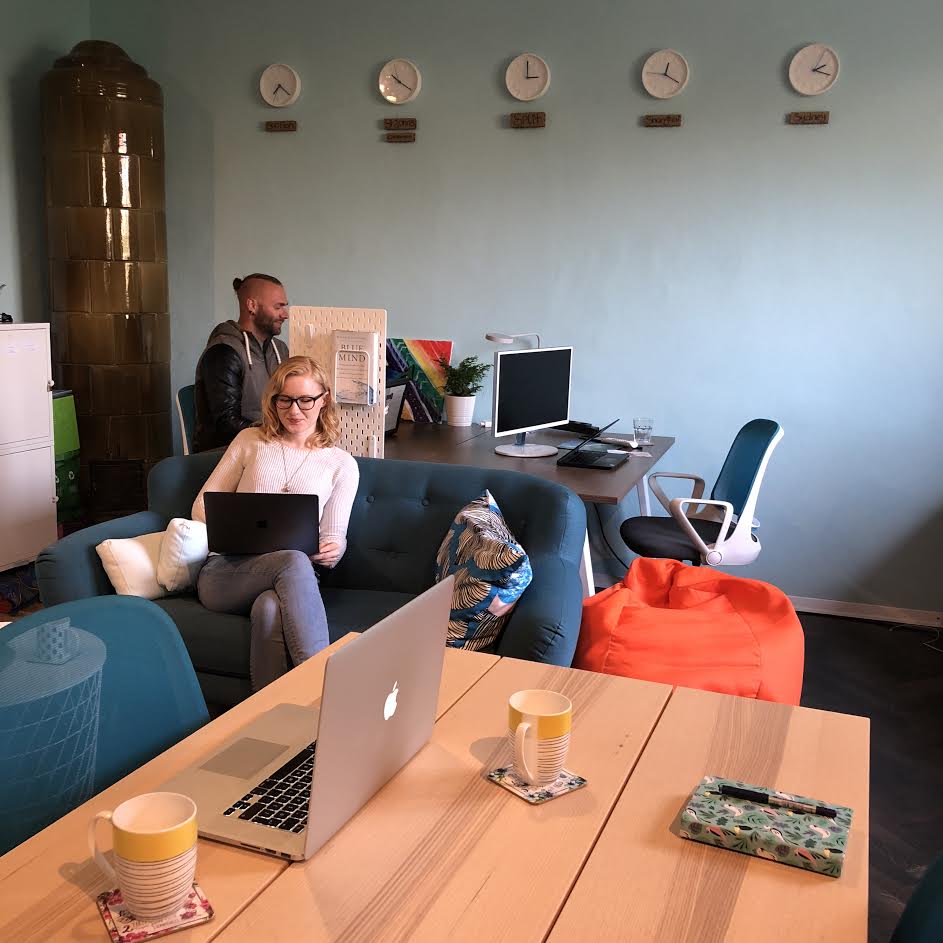
You are one of a growing number of digital nomads. Tell us briefly who you are and what you do.
My name's Gillian, I'm 26, originally from Montana, USA and I've been living and working remotely for a year and a half now in 11 different countries.
I work as a Research Associate for Remix Marketing Inc. where I conduct event and competitor research for our clients (Adobe, Facebook, and Aduro to name a few). I help them find the right speaking events to promote their thought leadership and put them ahead of the competition.
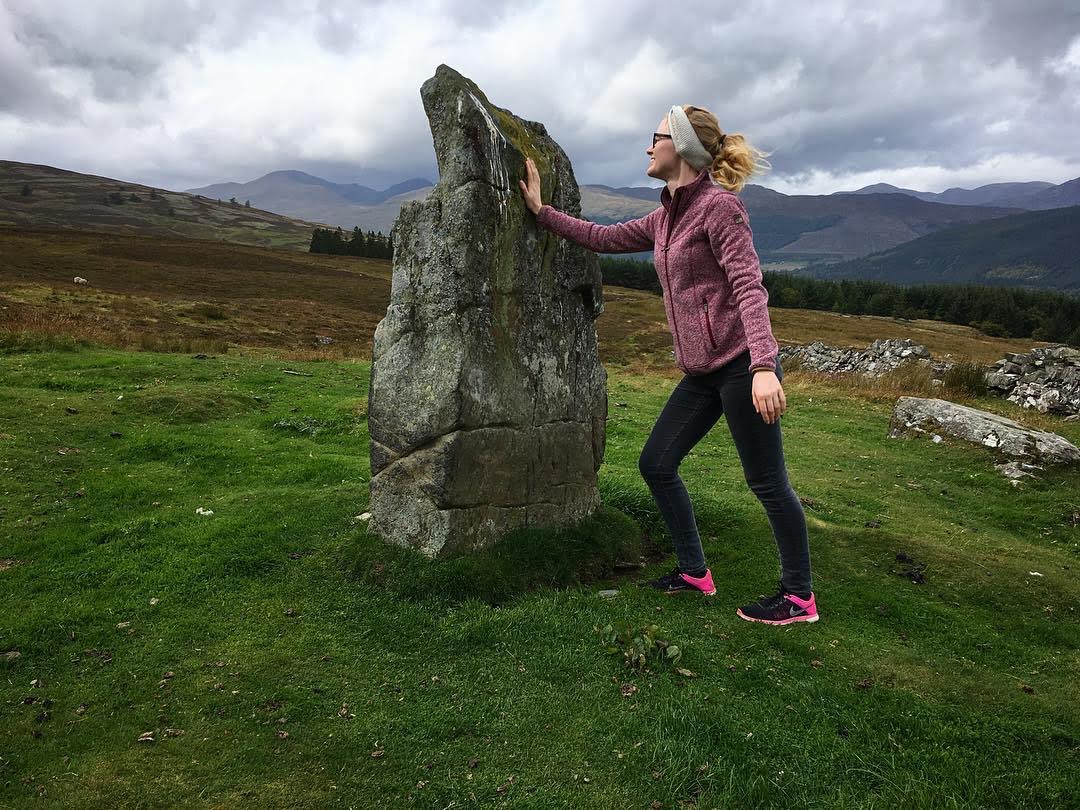
Working from your laptop rather than in an office seems like the dream lifestyle. What are the main pros and cons?
Cons: I have to be self-motivated and good at time management because I create my own schedule. Which is amazing but can be a struggle.
I never feel settled, I'm always planning the next part of my journey. (I mitigate this by staying in one place for longer, 1- 3 months.)
I'm reliant on WiFi. I have to choose my location, accommodation, travel route, etc. based on whether or not I can access reliable WiFi, which limits travel options.
Dating is difficult/near impossible. When I move every few months it's hard to have any lasting romantic relationships. This is less important for me at the moment, but still a con and something I've heard from lots of single nomads.
I'm essentially homeless. I have no "home base" which is a strange and difficult, yet freeing feeling.
It's hard to maintain a routine, and let's be real, humans need routine.

Pros:
Freedom! I choose where I want to go, when I work, how much I work, when I take a day off, etc. It's as great as it sounds.
I meet so many amazing people and cultivate deep, meaningful relationships with them. I'm so thankful for the beautiful friends I've made of all ages, from many countries and different backgrounds. I know I've changed for the better because of you all. (Special shoutout to my Split family!)
I have to live minimally (i.e. I only bring a carry-on sized backpack with me. Yes, really). I know that most people would see this as a con, but hear me out! I only have the items I need with me, and I rarely buy new things. It's a very affordable, sustainable way of living. Plus I can avoid the headache of lost baggage and extra fees.
I get to experience and learn about so many different foods, cultures, histories, etc. My life is far from mundane.
My self-confidence has grown immensely. If you need a boost, I highly recommend traveling solo (especially as a woman). It's the most empowering thing I've done.
My worldview is constantly challenged, and I'm a better, more open, understanding person because of it.

Laptop living gives you the freedom to travel and choose your place to live. Where are the global hot spots currently for digital nomads?
SE Asia (especially Thailand) and Columbia are the major hotspots for nomads. SE Europe is becoming more of one as coworking spaces pop up and people realize how many amenities are available to nomads at such an affordable cost here.
You chose Croatia and specifically Split - why?
I lived in Split for two years while I was working with the Ecumenical Women's Initiative in Omiš, where I assisted them in regional funding initiatives for women working in the areas of peace, women's human rights, and interreligious dialogue.
Now, Split's the closest thing I have to a "home." I visit other places but Split always pulls me back. I have so many friends in the region, and it's hard not to love the pace and quality of life, the fresh food, or the proximity to the mountains and sea that Split offers. There are also some really great coworking spaces including Saltwater, Amosfera, and WIP to work out of!
Plus, on my days off I can go rock climbing, sailing, snorkeling, hiking, exploring an island, or simply enjoy a glass of wine and some pršut from one of the many fabulous restaurants in Split. What's not to love??

What are the competitive advantages that Croatia has to attract more digital nomads?
Where do I start? Reliable, fast internet, already established coworking spaces, affordable living, the nature, the sea, hiking, rock climbing, windsurfing and other outdoor activities, culture, history, outstanding food and wine, a growing, innovative tech community, easy access to other places in the region (i.e. Bosnia and Herzegovina, Serbia, Slovenia, Montenegro, etc.), I could go on and on.
I tell all of my nomad friends to check out Croatia (specifically Split) as a destination!

To learn more about Croatia for the digital nomad, check out the Total Croatia Digital Nomad guide.
Are you a digital nomad in Croatia who would like to be featured in this series? Please contact us on This email address is being protected from spambots. You need JavaScript enabled to view it.
Digital Nomad Life in Croatia: Barbara Barrett, from Pennsylvania to Split
July 5, 2019 - As the number of digital nomads rises globally, some are choosing to spend some of their time in Croatia. A new TCN series meeting international digital nomads calling Croatia their temporary home. Meet Barbara Barrett from Pennsylvania.
As recently featured on TCN, the world is projected to have a billion digital nomads by 2035, people from all over the world doing all manner of jobs and business with one thing in common - a flexible, mobile workplace connected to the Internet. If even a fracture of that number becomes a reality, the economic opportunity for countries which can attract these wealth-generating individuals has the potential to dwarf Croatia's current tourism revenues. And there are few countries better placed than Croatia to take advantage. Safe, beautiful, great gourmet scene, top tourist destination, English widely spoken, well connected to other destinations, and a superb lifestyle.

In order to look at the issue in more detail, we have decided to look at some of the digital nomads who have Croatia in their lifestyle plan, and to find out why Croatia, what Croatia offers, and what are the things that countries should be looking out for to take advantage of this economic opportunity. I am very grateful to Tanja Polegubic from Split's waterfront co-working space, Saltwater in Split (see location below) for her help in connecting me to various digital nomads using her space.
Our next digital nomad in Croatia is Barbara Barrett, who enjoyed Dalmatian sunshine after arriving from Pennsylvania.
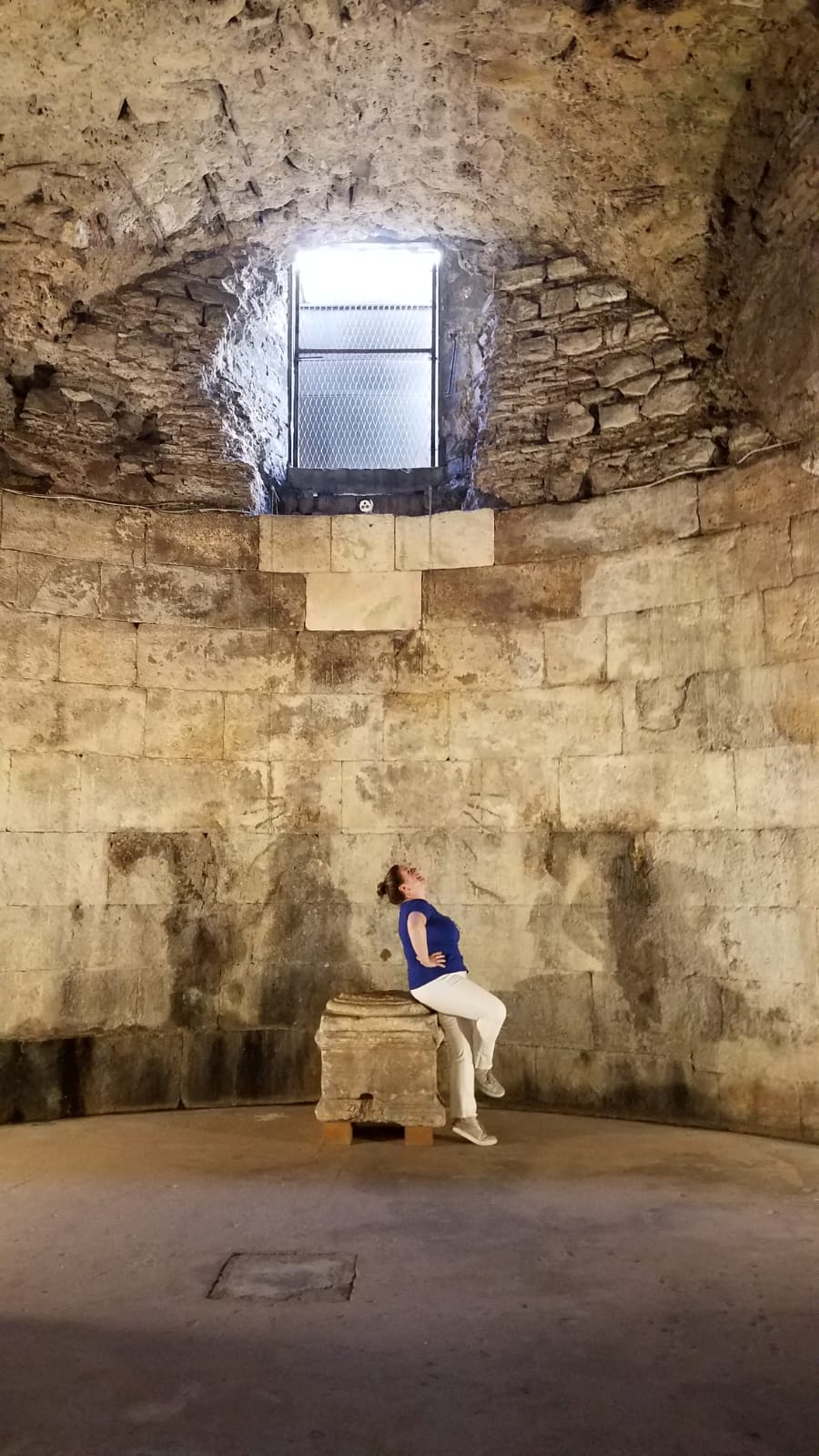
You are one of a growing number of digital nomads. Tell us briefly who you are and what you do.
Hi, I'm Barbara Barrett from the U.S. I'm a dynamic woman looking for everything I can squeeze out of life including meeting new people, learning new cultures and seeing new things that inspire me. After living abroad in England and Germany early in my career, I found that visiting a new country for 1 or 2 weeks wasn't enough for me. So, I got creative with work travel and personal travel making sure that I leveraged opportunities to explore new places where I was going for work, stay the weekend after in Paris or tag on a week's holiday to it. I started seeing all these new options for flexible work arrangements and digital nomads. I literally lit up. It was perfect for me. After a couple of years researching and planning, I finally moved out of my apartment in North Carolina, put my belongings in storage and have been "nomading" for nearly 4 months. For work, I do strategy and competitive intelligence and volunteer with The HBA (Healthcare Business Women's Association) who are committed to building women leaders and achieving gender parity.

Working from your laptop rather than in an office seems like the dream lifestyle. What are the main pros and cons?
For me the pros of working from my laptop from anywhere is a general sense of freedom to work when and where I feel inspired. Whether, that's checking my email over some really great coffee, or plugging into some great WiFi at Saltwater co-working space and getting a project done, or taking some marathon calls from my home, I'm completely aware that it's the people that I work with each day that energize me not the office. b. The cons are spending too much time alone, which is why co-working spaces are great or even a coffee or lunch spot. Originally, I tried to work within set hours. But I've found that in order to get the work done. I need to go with the flow. At the end of the day, my team needs to feel confident they can depend on me. Being flexible means being reasonably available for instant messages, calls and being proactive and following up on my end. Also important is communicating any schedule preferences in advance to my manager or teammates I'm working with at the moment.
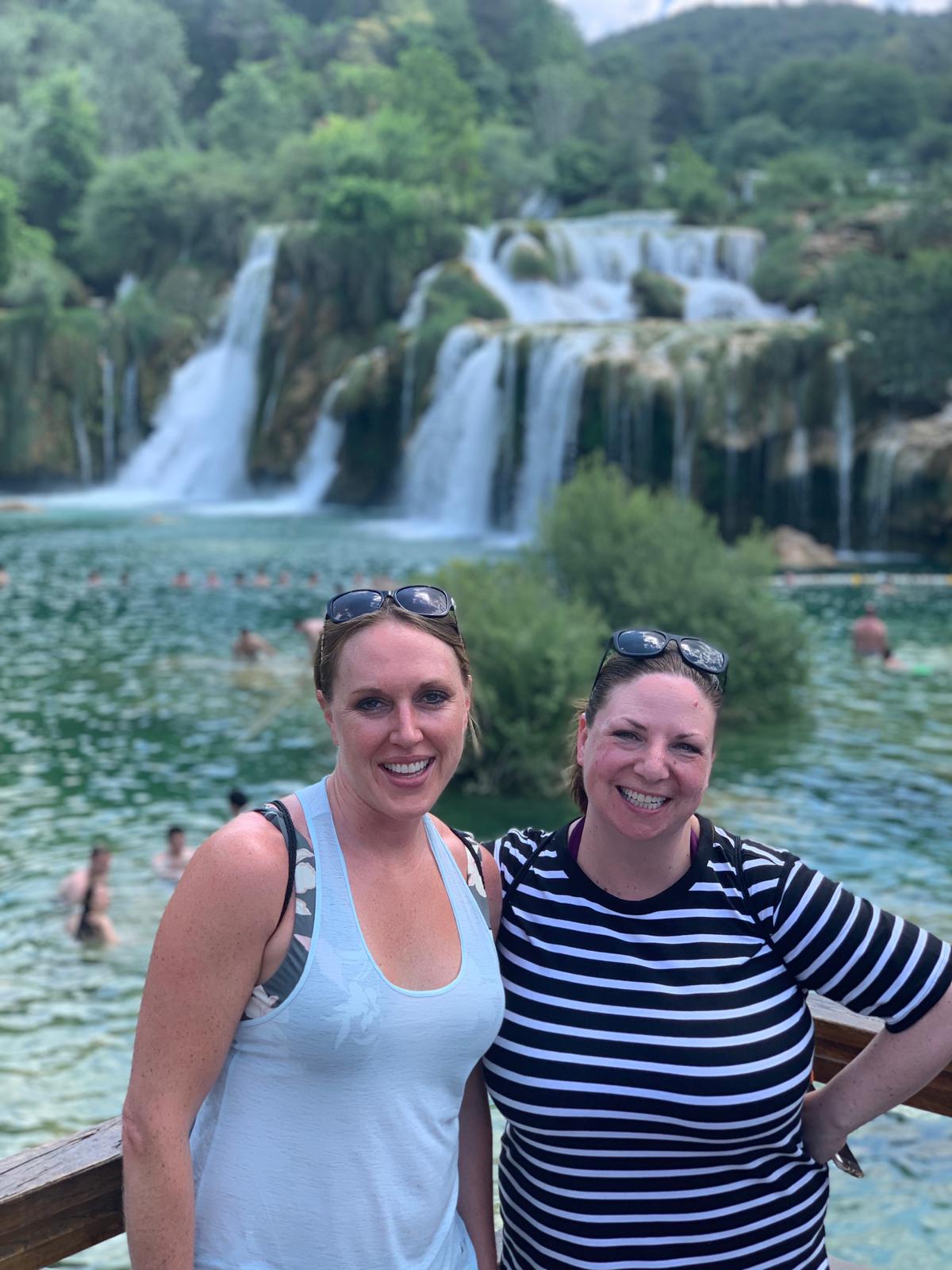
Laptop living gives you the freedom to travel and choose your place to live. Where are the global hot spots currently for digital nomads?
I think the hot spots are big cities and seaside towns. I chose to work through Be Here to help organize my flexible work arrangement. Bali and Lisbon are some of the most popular locations.

You chose Croatia and specifically Split - why?
Croatia has been on my wish list for many years. I was curious about Croatia meeting a community of Croatians when I lived in Germany. While researching Croatia, it looked so beautiful and I wondered why I had never heard much about it in the U.S. In January this year, I decided to wipe out all excuses and make it happen. I made the decision to come here, booked it, paid in full to hold myself accountable. I chose Split because it was one of the locations that Be Here offered. And I haven't been disappointed one day… even when it was unusually cold and rainy the first week I arrived. I walked down the stretch of beaches from my hotel to old town and didn't even mind the rain on me with no umbrella because it was still so beautiful.
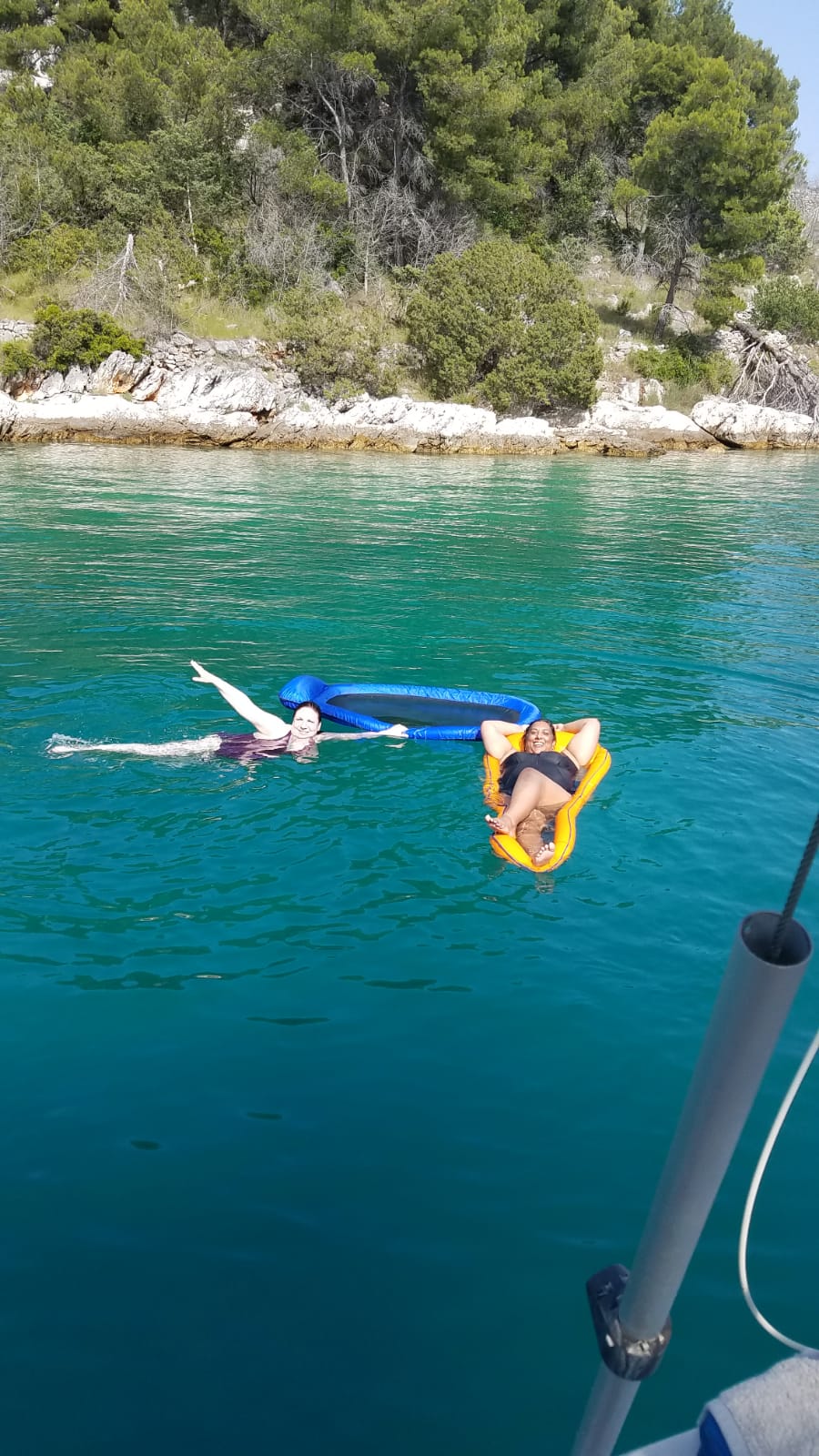
What are the most important things a destination should offer to be most compatible for the digital nomad lifestyle, apart from that all-important good WiFi?
A welcoming community is the most important for a destination. Getting connected to someone with local knowledge of places to go and culture can accelerate your navigation of the day to day and make it easier to integrate. Even better is a local host to show you around live, introduce you to other people, share knowledge that encourages you to find the new or unique local things that get you out of your comfort zone, learn something new and grow as a person.

What are the competitive advantages that Croatia has to attract more digital nomads?
The change of pace in work cultures is the biggest advantage Croatia has to offer to me. Coming from the U.S. a mindset change that I don't have to be working every moment of the day to be productive and get my work done. Success can look like and should include a 2-hour coffee with new acquaintances, heading out of the office early for a Croatian wine tasting or an evening dip at Bacvice beach are enjoyable and recharging. Doing anything near the Adriatic is the best thing I can think of for attracting nomads. My friends and family keep asking me if the water is really that color. I have to keep reminding them that there are no filters on my photos!
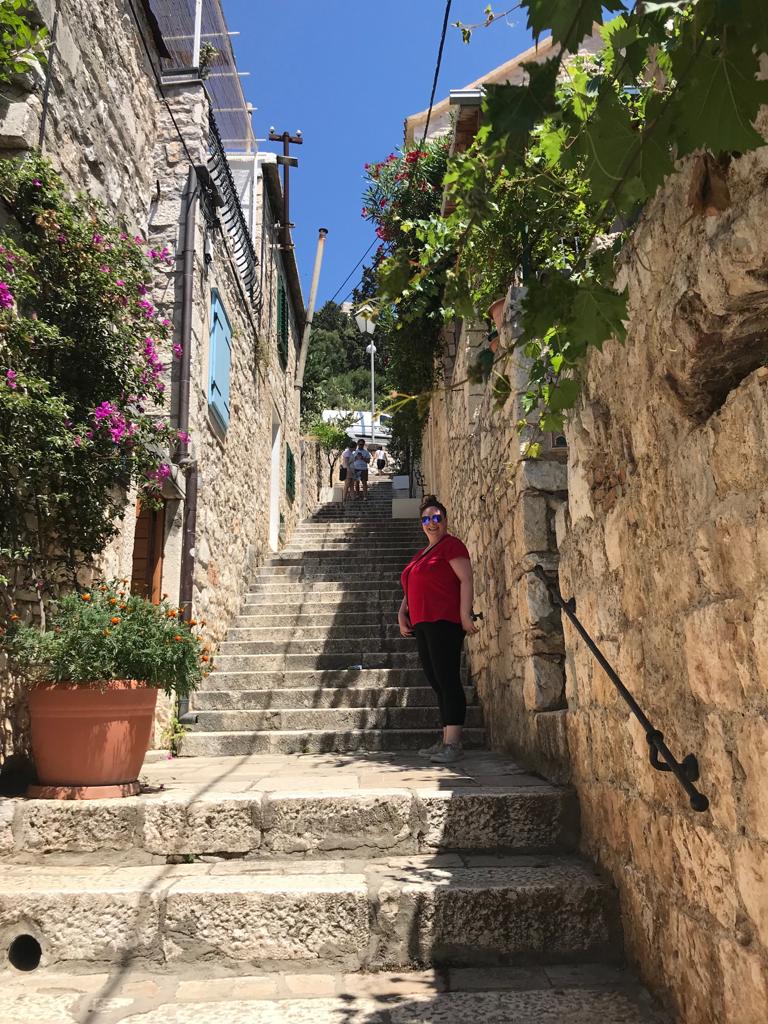
To learn more about Croatia for the digital nomad, check out the Total Croatia Digital Nomad guide.
Are you a digital nomad in Croatia who would like to be featured in this series? Please contact us on This email address is being protected from spambots. You need JavaScript enabled to view it.

Digital Nomad Life in Croatia: Kenneth Huynh, from Philadelphia to Split
July 1, 2019 - As the number of digital nomads rises globally, some are choosing to spend some of their time in Croatia. A new TCN series meeting international digital nomads calling Croatia their temporary home. Meet Kenneth Huynh from Philadelphia.
As recently featured on TCN, the world is projected to have a billion digital nomads by 2035, people from all over the world doing all manner of jobs and business with one thing in common - a flexible, mobile workplace connected to the Internet. If even a fracture of that number becomes a reality, the economic opportunity for countries which can attract these wealth-generating individuals has the potential to dwarf Croatia's current tourism revenues. And there are few countries better placed than Croatia to take advantage. Safe, beautiful, great gourmet scene, top tourist destination, English widely spoken, well connected to other destinations, and a superb lifestyle.

In order to look at the issue in more detail, we have decided to look at some of the digital nomads who have Croatia in their lifestyle plan, and to find out why Croatia, what Croatia offers, and what are the things that countries should be looking out for to take advantage of this economic opportunity. I am very grateful to Tanja Polegubic from Split's waterfront co-working space, Saltwater in Split (see location below) for her help in connecting me to various digital nomads using her space.
Our next digital nomad in Croatia is Kenneth Huynh, who enjoyed Dalmatian sunshine after arriving from Philadelphia.
You are one of a growing number of digital nomads. Tell us briefly who you are and what you do.
My name's Ken, I'm 38 and I currently work in Strategy and Product Management for a fintech innovation agency based in San Francisco as well as New York City called Kunai ( www.kun.ai). Our customers are large international financial institutions, payment networks, regional banks, credit unions, and hedge funds. Essentially we help big companies innovate their services and modernize their digital experiences.

Working from your laptop rather than in an office seems like the dream lifestyle. What are the main pros and cons?
Well, I actually haven't worked in a proper office in almost 10 years! So right now I'd say it'd be tough to ever go back to a daily office experience again:)
What I love about work from the laptop is the freedom to be productive in places and spaces that inspire and energize. Spaces aren't just about light, location, or free coffee. It's also about kinetically connecting with the people around you and being inspired by their passion. Depending on where you are in your career or energy cycle, you either need to be surrounded by passion or by calm. That's the beauty of being a "laptop professional".
In terms of the cons, it's very easy to go with your more passive inclinations. If you're not a morning person, unless you have meetings you might feel inclined to sleep in. Or if you're naturally someone who works at a moderate pace, it's possible to not accelerate your progress. It really requires you to be self-motivated, driven and know yourself. It's not for everyone at certain stages of their career!

Laptop living gives you the freedom to travel and choose your place to live. Where are the global hot spots currently for digital nomads?
International tech hubs are emerging all over the world. I hear Berlin and Paris have built up some excellent pools of energized people and talent. Startups are popping up all over the place there. Eastern Europe is also emerging, specifically Poland, Ukraine, and increasingly parts of the Balkans like Slovenia and Croatia. Sao Paolo and Buenos Aires are places where great South American talent is emerging. In Asia, Hong Kong and Singapore are places where internationally oriented talent is percolating.

You chose Croatia and specifically Split - why?
My ex-girlfriend had Croatian heritage so I had a strong desire to see and experience the beauty, food and culture of the amazing region as well as coast. I'm also kind of a Roman history buff, so I had to see Diocletian's palace. Lastly, I've heard about a growing tech scene in Croatia and Split sounded like a solid starting point:)
What are the most important things a destination should offer to be most compatible for the digital nomad lifestyle, apart from that all-important good WiFi?
Great food, friendly people, excellent peaceful accommodations, great coffee shops, and other likeminded people. I found all that during my experience at Saltwater Split. Also, somewhat selfishly, I'd also add a decent amount of English speakers:)

What are the competitive advantages that Croatia has to attract more digital nomads?
I think Croatia benefits a great deal from its gorgeous surroundings, close to so many naturally beautiful places. If you're a sea lover or wine lover, it's a paradise. Croatia's proximity to continental Europe's centers or commerce and culture are also a huge asset. Terrific cuisine is a huge plus. I also found my experience with local culture appealing too, I think there's something to be said for just good people. Lastly, a growing scene of technologists and thinkers is a gigantic asset. I hope it continues to grow even more!

To learn more about Croatia for the digital nomad, check out the Total Croatia Digital Nomad guide.
Are you a digital nomad in Croatia who would like to be featured in this series? Please contact us on This email address is being protected from spambots. You need JavaScript enabled to view it.
Lessons from Estonia: Farewell Uhljebistan, Welcome to the Future?
June 24, 2019 - If other countries in Eastern Europe can do it, why can't Croatia. Mighty Estonia, leading the world in the approach to the future. Some lessons...
The last time I was in Tallinn was in 1996, and my visit coincided with the Scottish football team due to play Estonia in some competitive game. I say due to play, as the Estonians never turned up, and Scotland kicked off on a pitch with no opponents. The match was abandoned two seconds later, and Scotland was awarded a 3-0 victory. The abiding memory was the chanting of the Scottish supporters:
"One team in Tallinn, there's only one team in Tallinn."
My first visit was four years earlier during my time in Russia in 1992. And, charming as Tallinn and Estonia were, it was hard to think that this Baltic republic, which was struggling to remove the shackles of its Soviet domination, would ever amount to anything significant on the world stage.
But it has.
And how.
A little innovative thinking from the early days of independence in 1991 to Estonia in 2019, the market European leader in digitalisation and progressive practices.
A tiny country of 1.3 million people with no outstanding resources of its own now one of the global leaders of future trends.
In the words of the World Economic Forum:
Estonia is often described as a genuinely digital society. Today a majority of government services are offered 24/7 online, and data integrity is ensured by blockchain technology. You can use medical e-prescriptions, file taxes, or even buy a car online without needing to go to the vehicle registration office. There are only a few things that you still need to do in the analog world, such as get married or buy property.
Why spend your life waiting in line for a piece of paper that proves you are you? Governments must learn to provide public services as efficiently as Amazon sells books: no physical presence, no cost of application, no opening hours.
For some weird and unexplainable reason, people normally expect better services from private companies than from their own governments. This is not the case for our citizens in Estonia. They expect a lot from their government and are constantly demanding us to improve and innovate. Estonians expect that if the private sector is constantly innovating, the government should be, too.
Take a moment to learn a little more from this CNBC International video feature, How Estonia became one of the world’s most advanced digital societies.
If Estonia can do it...
As lovely as Estonia is - and it IS - Croatia, with its huge tourism industry, great weather, safety, natural beauty and relaxed lifestyle, is a natural draw for the ever-growing army of digital nomads who are taking their wealth-creating lifestyles to the most interesting parts of the planet. It is estimated that there will be 1 billion digital nomads by 2035. If Croatia, with all its natural advantages, could attract just 2% of them, that would be 20 million digital nomads, quietly spending independent of the tourist season - more than the number of tourists currently visiting Croatia each year.
If Croatia is willing to learn lessons from others, there is so much potential - so much.
Lessons from Rwanda in how to promote tourism through football, for instance.
Lessons from Macedonia in how to promote wine.
Lessons from Malaysia in how to promote medical tourism.
Lessons from New Zealand and Northern Ireland in how to promote Game of Thrones.
Lessons from Swaziland, Bosnia and Serbia in how to promote the Chamber of Economy.
Will sometime soon the citizens of the Kingdom of Uhljebistan say enough is enough and fight to be on the same playing field of Rwanda, Estonia, Bosnia, Serbia, Macedonia and Swaziland (now known as Eswatini)?
To learn more about being a digital nomad in Croatia, check out the Total Croatia guide.
Digital Nomad Life in Croatia: Nicole, from New York City to Split
As the number of digital nomads rises globally, some are choosing to spend some of their time in Croatia. A new TCN series meeting international digital nomads calling Croatia their temporary home. Meet Nicole Pruess from New York.
As recently featured on TCN, the world is projected to have a billion digital nomads by 2035, people from all over the world doing all manner of jobs and business with one thing in common - a flexible, mobile workplace connected to the Internet. If even a fracture of that number becomes a reality, the economic opportunity for countries which can attract these wealth-generating individuals has the potential to dwarf Croatia's current tourism revenues. And there are few countries better placed than Croatia to take advantage. Safe, beautiful, great gourmet scene, top tourist destination, English widely spoken, well connected to other destinations, and a superb lifestyle.
In order to look at the issue in more detail, we have decided to look at some of the digital nomads who have Croatia in their lifestyle plan, and to find out why Croatia, what Croatia offers, and what are the things that countries should be looking out for to take advantage of this economic opportunity. I am very grateful to Tanja Polegubic from Split's waterfront co-working space, Saltwater in Split (see location below) for her help in connecting me to various digital nomads using her space.
Our second digital nomad in Croatia is Nicole Pruess, who enjoyed Dalmatian sunshine after arriving from New York.

You are one of a growing number of digital nomads. Tell us briefly who you are and what you do.
I'm American by birth, European (British) by choice. I have worked in digital advertising for 20+ years and currently work for a French ad-tech company. I'm fortunate that, while I'm a full-time employee, I'm able to work remotely much of the time.

Working from your laptop rather than in an office seems like the dream lifestyle. What are the main pros and cons?
I have the best of both worlds as I often spend time in our offices around the world and get the interaction and camaraderie that comes with office work. Mixing that with remote working is great, where I can set my own daily priorities and keep a schedule that suits my preferred lifestyle. It can be hard to stay disciplined and not get distracted when remote working, but the payoff is worth it.
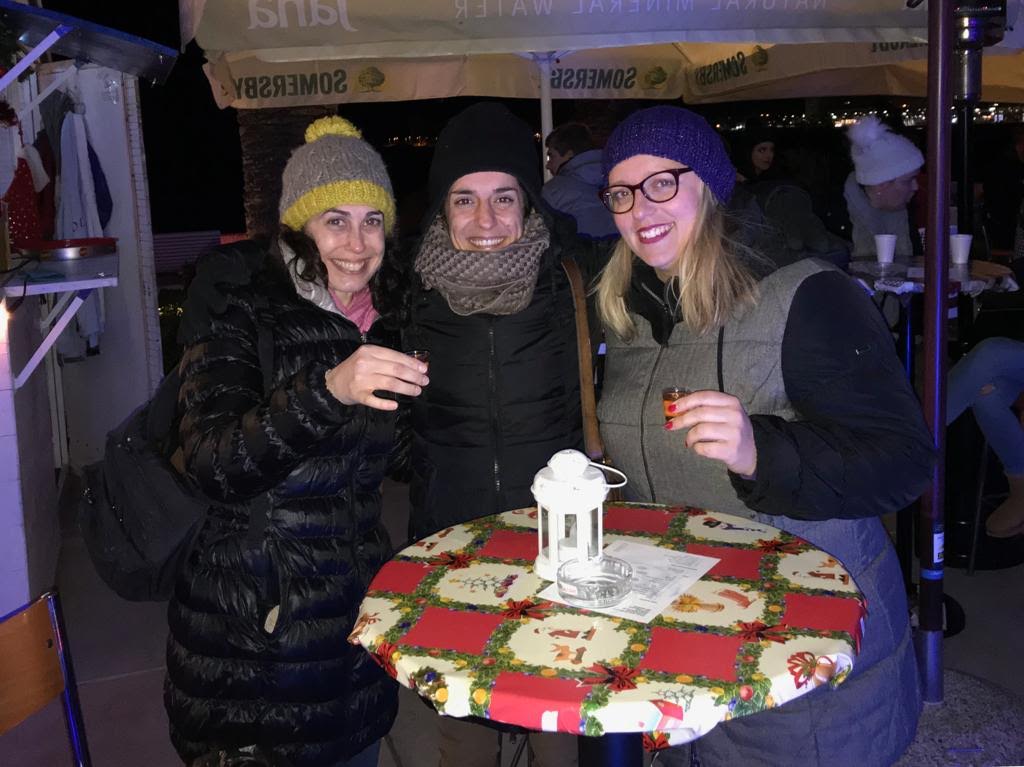
Laptop living gives you the freedom to travel and choose your place to live. Where are the global hot spots currently for digital nomads?
I'm too focused on Split to know!
You chose Croatia and specifically Split - why?
I fell in love with Split on my first visit to Croatia four years ago. I found myself wanting to go back again and again for the great cycling and "pomalo" vibe. Once I had more flexibility to work remotely, spending more time in Split was a top priority. By fate, I found Saltwater and was hooked! Having co-working spaces like Saltwater, that build community and promote connection, make Split a great place to be a part-time or full-time digital nomad. Split ex-pats also have an active digital presence that supports those who are looking to get deeper connected to the city and surrounds.

What are the most important things a destination should offer to be most compatible for the digital nomad lifestyle, apart from that all-important good WiFi?
It very much depends on your specific job, but having a community of people open to supporting newcomers is very important. Learning from the experience of those who have already found the best coffee, know where to find products you miss from home, can point you to the best secret beaches, etc. is invaluable.
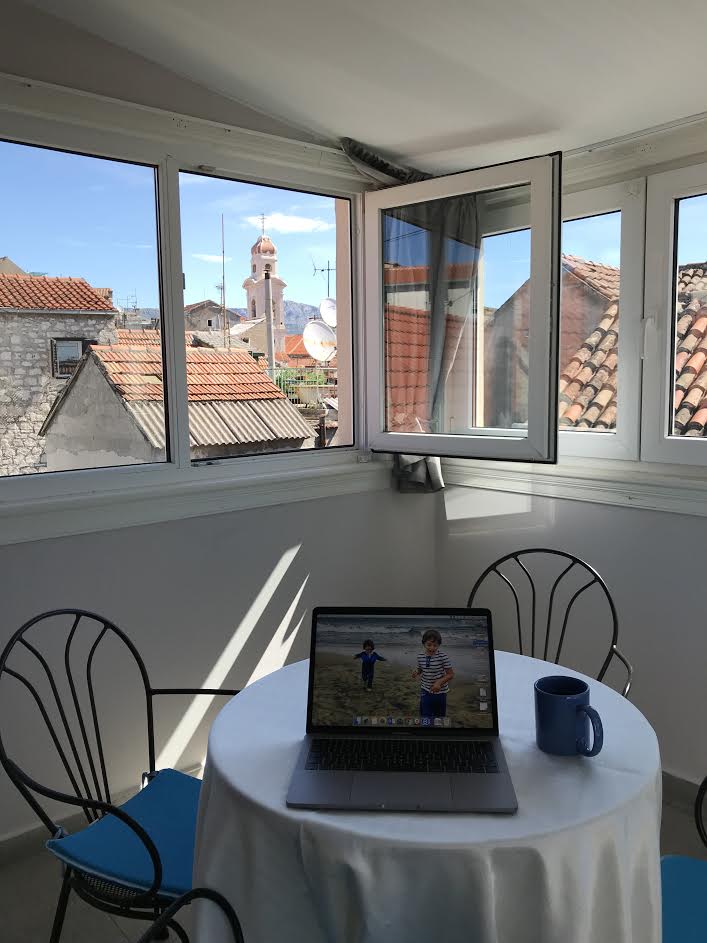
What are the competitive advantages that Croatia has to attract more digital nomads?
Croatia is an especially great option for people in Europe with the easy access to most major cities, while also feeling worlds apart. On a more global scale, there's an active and growing tech scene with lots of opportunity for digital nomads to connect and explore. You feel like your next big idea could come unexpectedly from a having a chat over a beer, or a day at the beach!
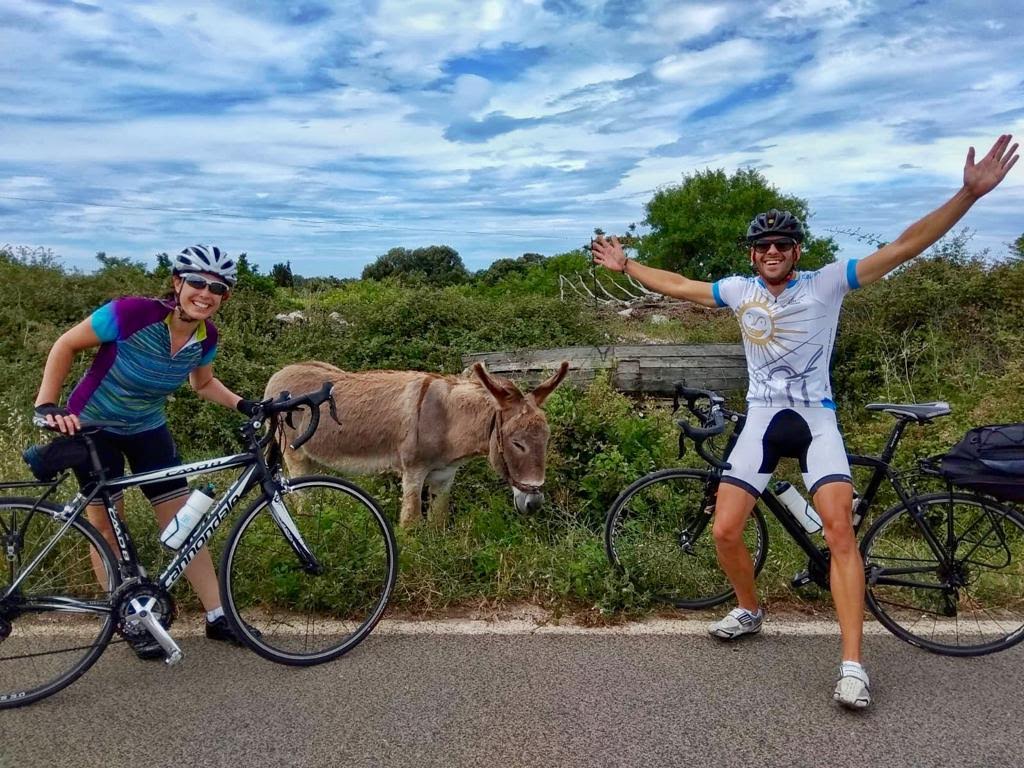
To learn more about Croatia for the digital nomad, check out the Total Croatia Digital Nomad guide.
Are you a digital nomad in Croatia who would like to be featured in this series? Please contact us on This email address is being protected from spambots. You need JavaScript enabled to view it.
Digital Nomad Life in Croatia: Chris, from Colorado to Split
June 21, 2019 - As the number of digital nomads rises globally, some are choosing to spend some of their time in Croatia. A new TCN series meeting international digital nomads calling Croatia their temporary home. We start with Chris Mendenhall from Colorado.
As recently featured on TCN, the world is projected to have a billion digital nomads by 2035, people from all over the world doing all manner of jobs and business with one thing in common - a flexible, mobile workplace connected to the Internet. If even a fracture of that number becomes a reality, the economic opportunity for countries which can attract these wealth-generating individuals has the potential to dwarf Croatia's current tourism revenues. And there are few countries better placed than Croatia to take advantage. Safe, beautiful, great gourmet scene, top tourist destination, English widely spoken, well connected to other destinations, and a superb lifestyle.
In order to look at the issue in more detail, we have decided to look at some of the digital nomads who have Croatia in their lifestyle plan, and to find out why Croatia, what Croatia offers, and what are the things that countries should be looking out for to take advantage of this economic opportunity. I am very grateful to Tanja Polegubic from Split's waterfront co-working space, Saltwater in Split (see location below) for her help in connecting me to various digital nomads using her space.
I am also very grateful to Chris Mendenhall from Colorada for being the first in the series. A really nice story of have laptop, will travel out of the box.

You are one of a growing number of digital nomads. Tell us briefly who you are and what you do.
I have what I call a “freelance office services business” based in Colorado. That means I do all kinds of administrative (secretarial, bookkeeping, etc.) work for small businesses that need help but don’t necessarily need to hire a full-time person. The piecemeal work from all 10 of my clients fills my time nicely. When I realized that I do most of my work on my own laptop and that I could do it from anywhere, I decided to spend a year doing it from Europe!
I’m not the typical digital nomad who never plans to call one port home. I am a 55-year-old woman with a home I plan to return to at the end of my year abroad. Before this trip, I was a creature of habit and routine who enjoyed roots and familiarity. This trip has taught me a great deal about flexibility, freedom, and the possibilities that await outside the confines of a “normal” life.
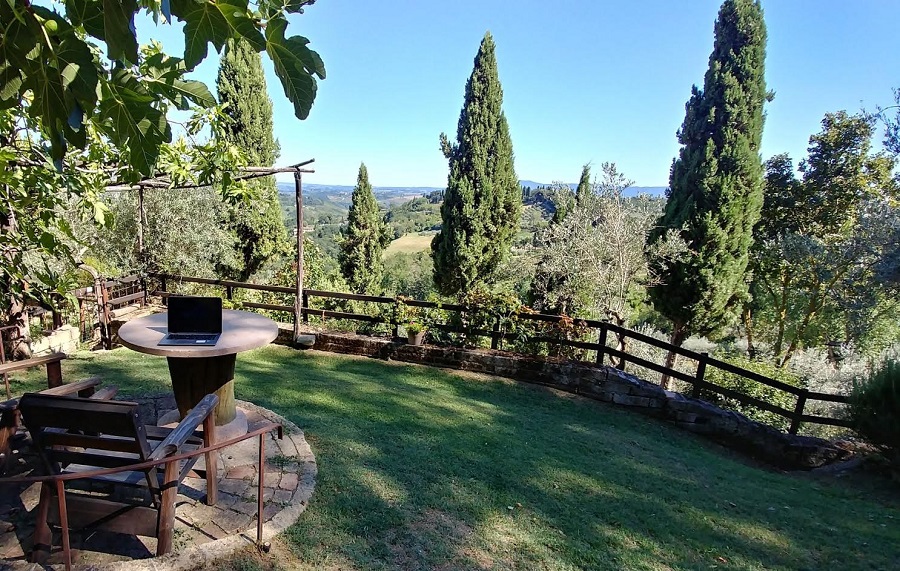
Working from your laptop rather than in an office seems like the dream lifestyle. What are the main pros and cons?
It has been fantastic! When I worked from home, I mostly felt tied to my home office, but being in different locations has made me get out among people and work in coffee shops, coworking spaces, libraries, parks, etc. Cons: I don’t always have everything I need at my disposal (like notes I forgot to bring or a printer, although I rarely need a printer); some locations like coffee shops can be distracting and you feel like you need to keep buying coffee; working from coworking spaces can be expensive compared to your own house; not having the perfect desk set up, especially if ergonomics is important to you.
Pros: variety; flexibility; opportunities to meet many different people; inspiration; letting my environment keep my work fun and interesting.
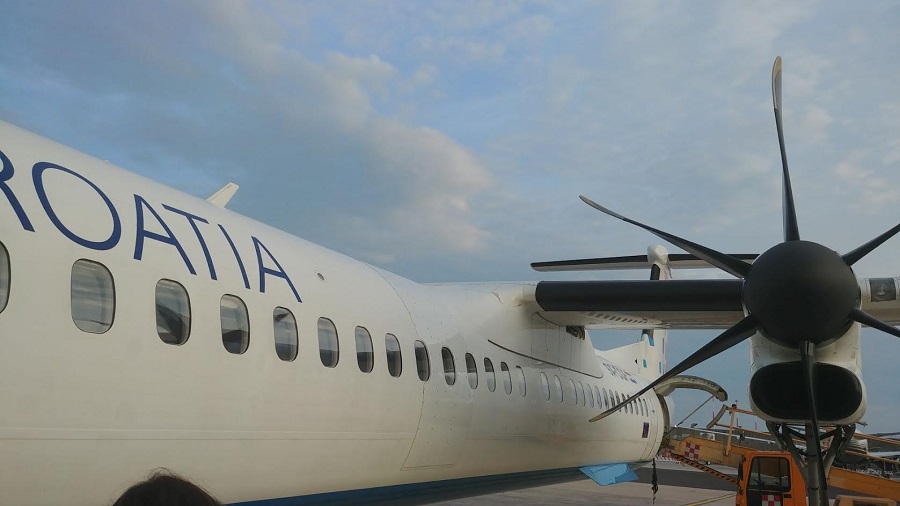
Laptop living gives you the freedom to travel and choose your place to live. Where are the global hot spots currently for digital nomads?
I can’t speak to the global hot spots for other people, but I’ll say that every city I’ve visited has had its own charm and benefits, and it that is the very element that adds to the nomadic appeal. The factors that determine the ease of working remotely include good public transportation, good wifi, and a centrally-located apartment. If it is too hard or time-consuming to get to good places to work, you lose a lot of time just moving around. When that has happened for me, I ended up working alone in my apartment, which I could have done from home.
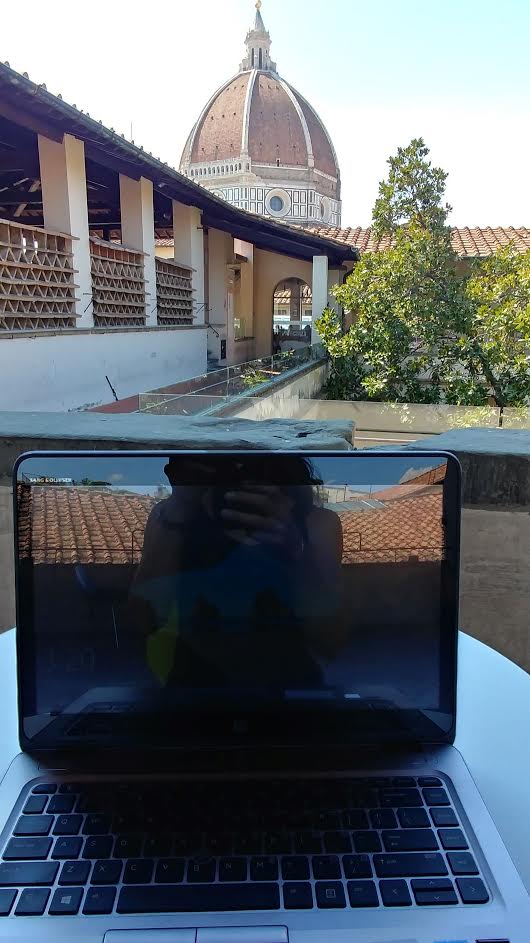
You chose Croatia and specifically Split - why?
I chose Croatia because I needed a non-Schengen country to pass the time before I could go back to the Schengen countries that I thought I came to Europe for. A number of friends had recommended Croatia because of recent trips there. Word is quickly getting out about what a fabulous tourist destination it is and folks are interested to see it before the crush of tourism in more well-known European countries seeps toward the Adriatic Sea. Most people recommended Dubrovnik, but I chose Split because it was slightly more centrally located in case I wanted to visit farther north and because it was bigger than Dubrovnik, I thought it might offer more amenities than just what a pretty Old Town might.
Split was a perfect choice because unlike many coastal Croatian towns that I visited over the winter, Split retains its lively community year around. Public transportation within the city and to other nearby destinations is great, and the cafes, shops, restaurants and bars remained open and offered plenty of shopping, entertainment, and culinary options. Of course, the natural beauty of the coast was delightful and especially appreciated in the winter. Through word of mouth, I knew of two coworking spaces before I even got there (Saltwater and Amosfera), and they not only provided places to work, but a thriving network of professionals and fun individuals. I attended several events and activities connected with those two spaces and met some wonderful people.
Coworking individuals and digital nomads tend to be fairly young and while I really enjoyed that vibrancy, I also appreciated that Split has a number of older people who have moved there to retire. That meant that between those with flexible work schedules and those done with working entirely, it was easy to find someone at any moment to call for a coffee or a walk or an excursion! My life in Split was rich, well-connected, entertaining, and beautiful!
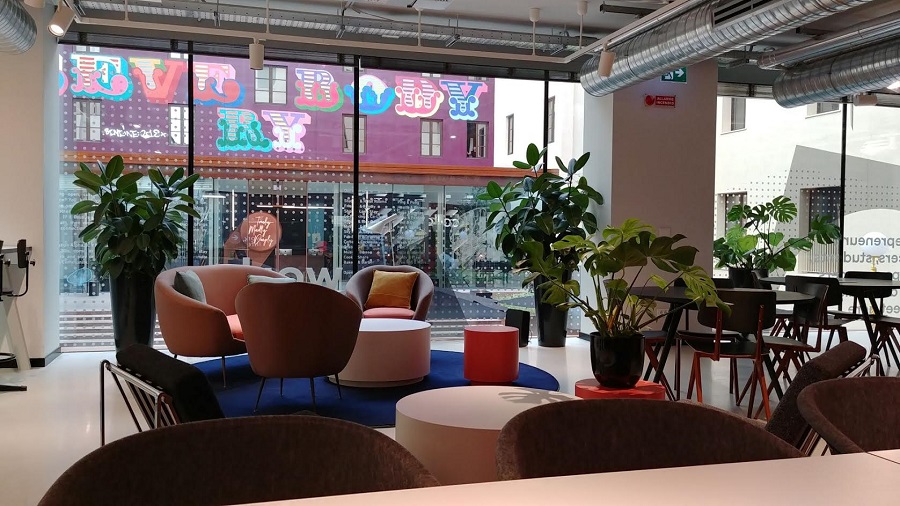
What are the most important things a destination should offer to be most compatible for the digital nomad lifestyle, apart from that all-important good WiFi?
Again, public transportation is really helpful. If a city has a bikeshare program (like the amazing Mobike system in Florence, Italy), that makes getting around much easier. Coworking spaces that host networking opportunities or provide an atmosphere of shared interests (rather than just office space) make a huge difference, especially if they offer short-term memberships. Plenty of cafes are key and if they offer wifi and outlets, all the better. Gyms or yoga studios are a plus. Parks, green spaces, and the coastline provide sanity for me.
What are the competitive advantages that Croatia has to attract more digital nomads?
Croatia, and Split specifically, offers a beautiful, unique environment even during the winter months. People are friendly and prices are reasonable. Most people working remotely are not raking in an exorbitant income, so working in expensive cities can be a burden. I loved the green market and the fish market in Split, and there are super cheap movies in the theater in the center of town. Festivals and events keep things entertaining, but can make lodging and dining challenging. I loved that there were so many beautiful places to visit just an easy bus ride away from Split. Split also has an active expat Facebook community that made meeting friends easy, both expats and locals. Meetup.com also provides great opportunities for meeting other people.
I have been so inspired by the creative and collaborative communities found in coworking spaces throughout Europe that I’m considering running one of my own when I return to Colorado.
You can follow Chris' digital nomad journey through Europe on her blog, From One Little Idea.
To learn more about Croatia for the digital nomad, check out the Total Croatia Digital Nomad guide.
Are you a digital nomad in Croatia who would like to be featured in this series? Please contact us on This email address is being protected from spambots. You need JavaScript enabled to view it.
How Croatia is Becoming Increasingly Attractive for the Digital Nomad Lifestyle
June 19, 2019 - Tourism is a major component of the Croatian economy, but a changing digital world offers an even more lucrative sector - lifestyle for the digital nomad.
The world is changing, and some of those changes are global and change the way we do things forever.
It is just over 20 years since a small company called Google was founded, for example. Does anyone even remember how we used to source information before the Great Google God?
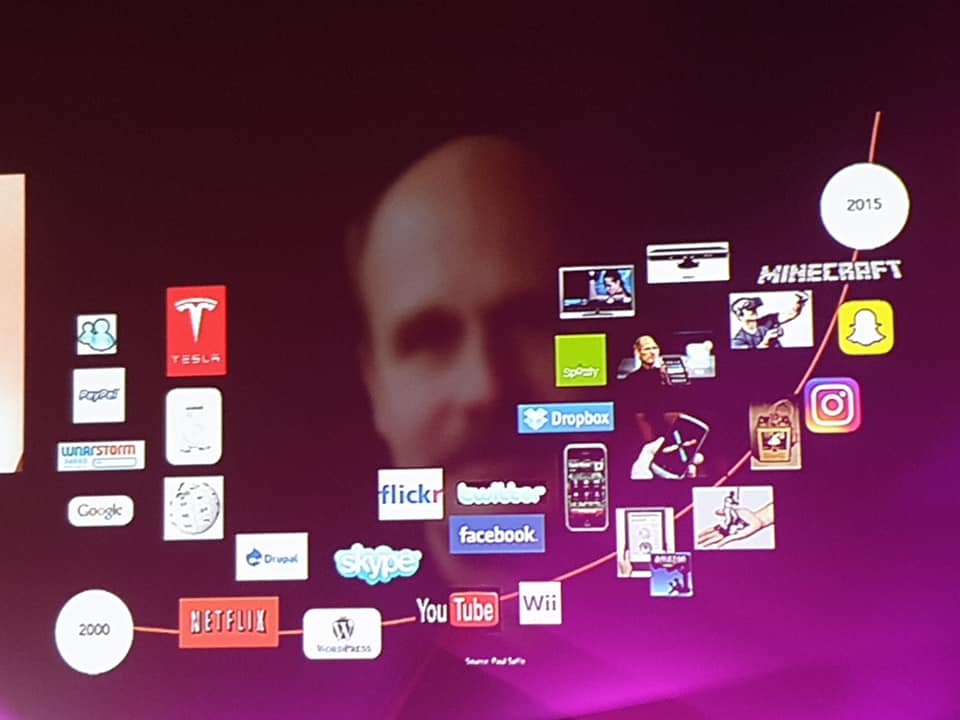
(Screenshot from Digital Takeover conference in Zagreb)
Uber, Facebook, Netflix, YouTube, AirBnB - among many of the companies that dominate our lives but which did not exist 20 years ago.
And there is one more revolution which has already started but which is accelerating - the mobile workplace.
The term digital nomad is perhaps still not so well understood by many, and even less see just what an impact it is going to have on the status quo in the coming years. Or how countries which embrace this imminent - and inevitable - change can benefit enormously. Or how Croatia is in prime position to take full advantage and attract wealth creating visitors to boost its economy throughout the year.
Without really trying too hard.
Let me give you an example from a meeting I had yesterday with a very nice Ukranian and Russian couple in their early 40s here on Hvar. They live in Munich and he works for an IT company, where the boss has decided that his staff would be happier and more productive if he let them work remotely 10 months a year, with only 1-2 months required in the office. The boss himself only spends 6 months in the office and has arranged things whereby he can spend the other half in the warmth of Asia.
The couple I met last night decided that they wanted to use the opportunity to travel and to experience life in different countries and integrate into communities. The wife came with her family to Jelsa 19 years ago on holiday, and the memories were warm enough for them to decide to put Jelsa into their plan, and so they have been here for 3 months, from April to June, with plans to do exactly the same next year. From Jelsa, they will move to Sicily for 2-3 months and then onto Portugal or Spain. And after the required stop in Munich, it will be back to Jelsa next April.
The working day is just like any other for someone working online. Deadlines, phone calls, emails, contact with bosses and colleagues. But all this is done remotely. What is different is that each morning starts with a swim before work and a swim after work. They shop in the market, drink coffee in the cafes, and eat in the restaurants. They are even learning Croatian, as they want to get the most out of the community experience. Friends and family come to visit, and they too visit the market, cafes and restaurants. The couple also has many friends with a similar lifestyle, who will be following the places they stay in and consider them for their own digital nomad experience.
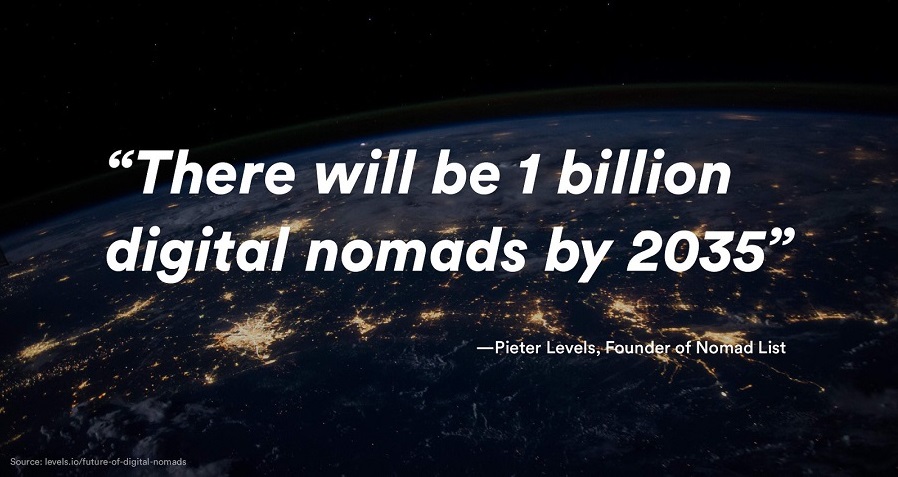
There will be a projected one billion digital nomads in the world by 2035. A shift in the global economy and work pattern on a par with what Google did for information and Uber for catching a cab.
And Croatia has SO many advantages to get a sizable part of that business. If Croatia could attract 2% of that projected number, that would be 20 million digital nomads a year, which is more than the current tourism numbers. And they would stay longer, spend more, many of them out of season. The boost to the economy would be much more than tourism currently. And if Croatia managed to attract 3%, or more...
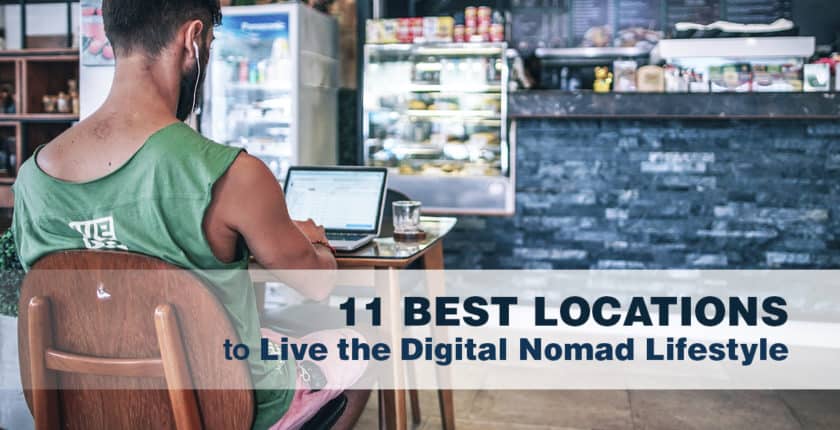
The digital nomad way is about much more than simply a good WiFi connection. It is a lifestyle choice, where people want to experience great living conditions to complement their online working day. Destinations which are safe, beautiful, have great food and wine, lots of activities, the chance to meet people and build a temporary social life, where English is widely spoken, the weather is great, and getting to other places is relatively easy.
Are there many better places in Europe for ticking all the boxes above? Check out the Total Croatia Digital Nomad in Croatia guide.
All the key factors are in place to position Croatia as an important player in this lucrative sector. All that is required is to get a better understand of the exact needs of this new breed of visitor, ensuring that those needs are catered to, and then a concerted campaign to tell the world why Croatia.
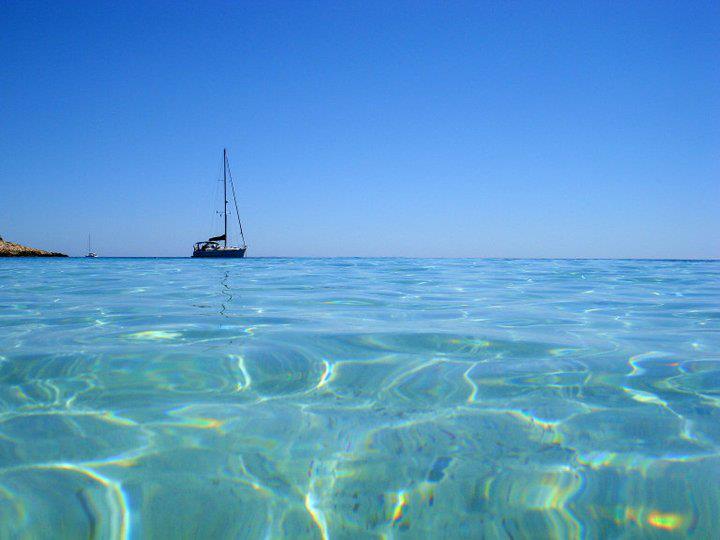
It really should not be too much more complicated than that.
Considering spending some time living in Croatia and wondering what it is like for foreigners? The Total Croatia Living in Croatia guide has more.


